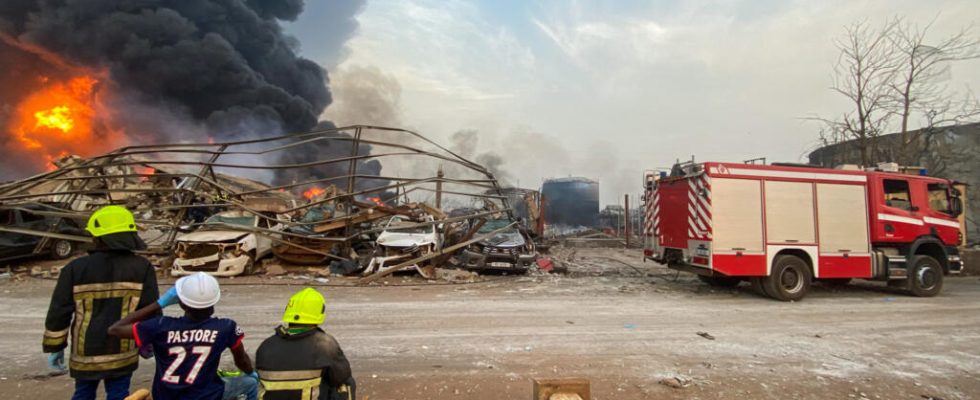It has now been two weeks, on the night of December 18 to 19, 2023, that the country’s main hydrocarbon depot exploded, killing 24 people and injuring more than 450 people. In addition to the humanitarian consequences, the Guinean state is working to meet its fuel needs. There is urgency, because the shortage is already having an impact on the Guinean economy and on purchasing power.
2 mins
Fuel prices have soared due to the shortage. Automatic consequence: the price of transport has increased and with it, that of goods and basic products sold in the markets, which has severely affected the purchasing power of households.
The population’s fuel needs are the greatest. Because it is used by the majority of the motorized fleet in Guinea. At service stations, where queues continue to lengthen, the distribution of gasoline is now limited to 25 liters for cars and 5 liters for two-wheelers and tricycles. Insufficient in a country where the supply of public transport remains very limited.
The lack of fuel also penalizes many economic sectors, notably the mining industry, the main source of foreign currency for the country. Some factories have already suspended their activities, such as the Dinguiraye Mining Company (SMD), a subsidiary of the Russian gold company Nordgold.
Read alsoGuinea: deadly explosion in an oil depot at the port of Conakry
In a letter dated December 30, 2023 that RFI was able to obtain, management informed its staff of their immediate layoff. A decision that the company justifies by the total exhaustion of its stock of heavy fuel oil, the famous HFO, essential for the continuation of its operations.
The SMD specifies that it only has a little diesel left which will be used to maintain the equipment of its factory, its power plant and for the supply of electricity in the cities which house its employees.
One of the first measures taken by the Guinean authorities was precisely to call on mining companies to requisition their diesel and especially their HFO, primarily intended for the power stations of the public company Electricité de Guinée (EDG) to supply the country with energy.
The government quickly appealed to its neighbors, including Côte d’Ivoire with which it was signed a 50 million liter delivery contract of fuel per month.
From the first day of the tragedy, the sale of fuel in gas stations was simply suspended, before opting for rationing per vehicle following clashes in Conakry between the police and groups of young people, among including several motorcycle taxi drivers hostile to the measure.
By the admission of Prime Minister Bernard Goumou, “ this crisis will take time » due to “ public and private sector services which are at a standstill “.
Read alsoGuinea: after the explosion of the main depot, the fuel supply in question
